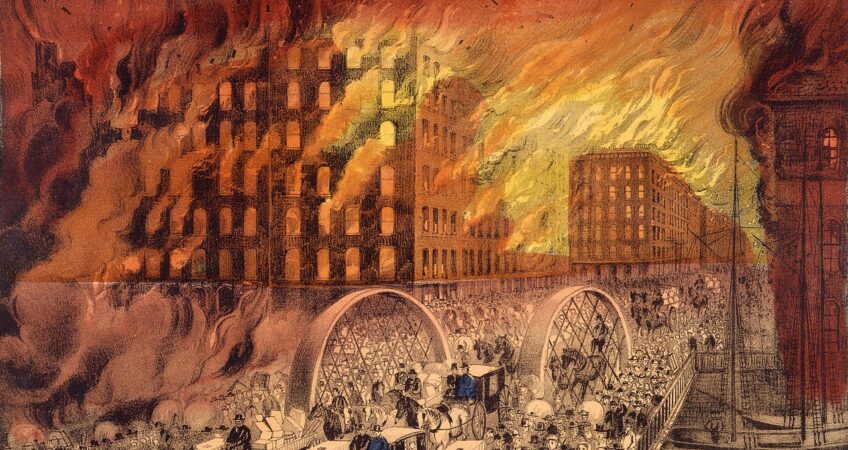Article by Dale Grant
Fire Prevention Week is observed annually during the week of October 9th to commemorate the Great Chicago Fire of 1871. This devastating event, which began on October 8th, resulted in the deaths of over 250 people, left 100,000 homeless, and destroyed more than 17,000 structures. While many have heard the story of Mrs. O’Leary’s cow kicking over a lantern, the true cause of the fire was never officially determined. What is certain is how the city’s wooden structures and a series of unfortunate circumstances, including dry weather and overwhelmed firefighters, allowed a small barn fire to turn into a massive disaster.
By 1911, the Fire Marshals Association of North America recognized the need to raise awareness about fire safety, launching the first National Fire Prevention Day. This later evolved into Fire Prevention Week in 1922, with President Calvin Coolidge officially proclaiming the first Fire Prevention Week in 1925. He emphasized the urgent need for fire prevention, noting that most fire-related losses were preventable.
Since then, the National Fire Protection Association (NFPA) has sponsored Fire Prevention Week, selecting a new theme each year to focus on a specific aspect of fire safety. For 2024, the theme is “Smoke Alarms: Make Them Work for You!” The emphasis is on the importance of installing, testing, and maintaining smoke alarms to protect lives and property.
According to the NFPA, working smoke alarms reduce the risk of dying in a home fire by 55%. Despite this, nearly 40% of home fire deaths occur in homes without smoke alarms or with alarms that failed to operate. Ensuring that smoke alarms are properly installed and tested regularly can drastically improve survival rates. In fact, three out of five home fire deaths happen in homes without working smoke alarms, highlighting their critical role in fire safety.
At Oliver Fire Protection & Security, we are committed to supporting the NFPA’s mission. Throughout Fire Prevention Week, we will provide valuable insights into the role of smoke alarms in commercial facilities, high-rise and multi-tenant housing, medical buildings, and educational institutions. As the first line of defense in fire safety, properly installed and maintained smoke alarms can significantly reduce the risk of fire-related injuries and fatalities.

